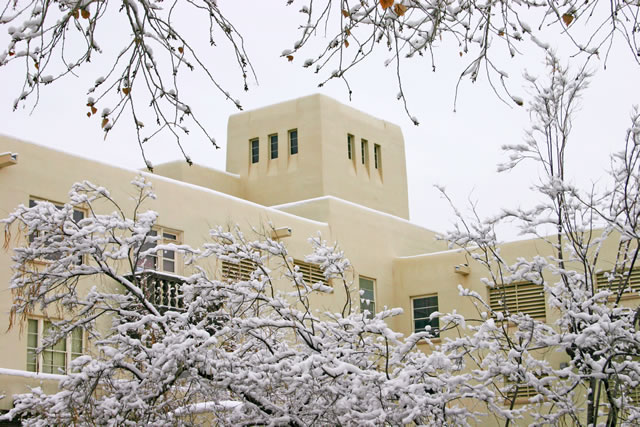
Organization, Information and Learning Sciences ETDs
Publication Date
Fall 12-16-2023
Abstract
Using a qualitative, naturalistic inquiry research design, and following the guide principles for conducting research with American Indian populations, this study explored how American Indian college students develop a sense of well-being as they pursue an associate degree in a rural community college. To understand well-being from an American Indian perspective, I used an indigenous model, Secatero’s (2009) four Well-Being Concepts, which include physical, social, mental, and spiritual aspects, as the conceptual framework for my study. The participants in my study described well-being as identity, beliefs, values, relationships, perseverance, and financial stability. They were developing a sense of well-being as they pursued an associate degree.
The themes and subthemes that emerged from the interviews I conducted with students pursuing an associate degree in a rural community college helped me to interpret the results and reconceptualize Secatero’s four Well-Being Concepts. The reconceptualized well-being concepts radiate from the inner core to the outer ring, progressing like the growth of a tree. At the innermost core is cultural identity, progressing into spirituality and family-community support to the outermost college preparation, all of which contribute towards the development of well-being as students pursue their degrees. American Indian college students develop a sense of well-being if they are grounded in their cultural identity, have a strong sense of spirituality, and have family and community support to take them through college. In addition, college preparation prior to enrollment helps them succeed as students. Challenge and persistence were part of the participants’ lives through their associate degree program of study.
Several implications are suggested for how higher education administrators and faculty can support American Indian college students to develop a sense of well-being to succeed in obtaining their degrees. Future research using more in-depth interviews with diverse American Indian college students in diverse contexts can develop a comprehensive understanding of the well-being concepts explored in this study.
Degree Name
Organization, Information and Learning Sciences
Level of Degree
Doctoral
Department Name
Organization, Information & Learning Sciences
First Committee Member (Chair)
Dr. Charlotte "Lani" Gunawardena
Second Committee Member
Dr. Amir Hedayati-Mehdiabadi
Third Committee Member
Dr. Vincent Werito
Fourth Committee Member
Ms. Sarah Kostelecky
Language
English
Keywords
Well-Being, Corn Model, Secatero, Indigenous Perspective, Rural Community College, Persistence, Strengths-Based Approach, Holistic Approach
Document Type
Dissertation
Recommended Citation
Martin, Elvira. "An Exploratory Study Of How American Indian College Students Develop A Sense Of Well-Being As They Pursue An Associate Degree In a Rural Community College." (2023). https://digitalrepository.unm.edu/oils_etds/70


